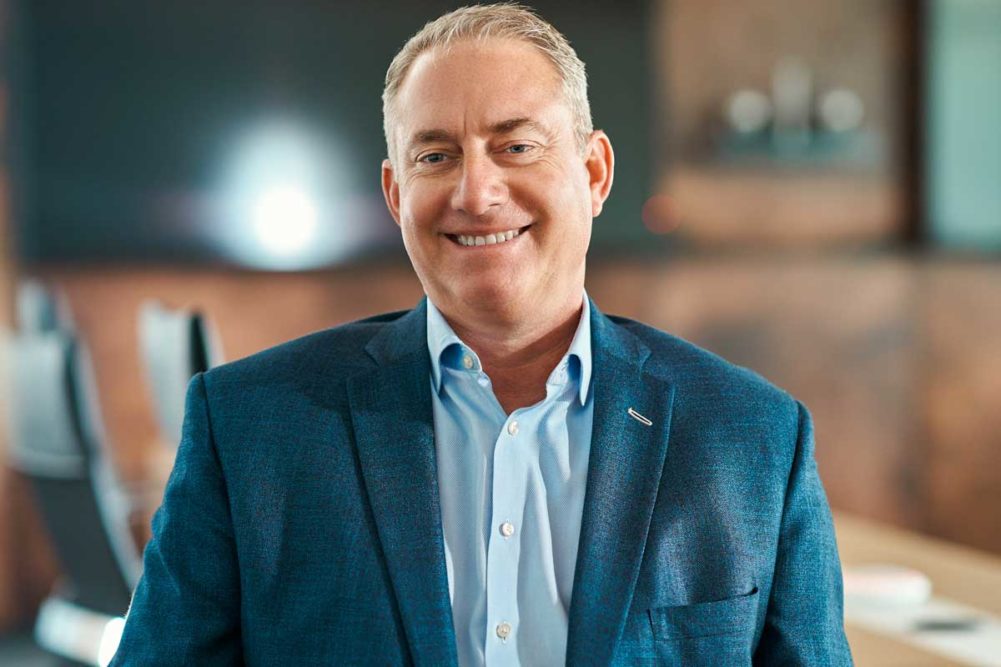ST. LOUIS, MISSOURI, US — The “B” in the in the so-called “ABCD” agribusiness companies (ADM, Bunge, Cargill and Louis Dreyfus), which control an estimated 90% of the global grain trade, just got a lot bigger on June 13 when Bunge announced its acquisition of Viterra, another top agribusiness company, pending regulatory approvals.
After being a takeover target just a few short years ago, Bunge has strung together a series of impressive earnings reports during the past four years and put itself into a position to be the hunter, rather than the hunted.
“We earned the right to do this in our execution and by what we’ve done to strengthen our balance sheet,” Gregory Heckman, chief executive officer of Bunge, said during an investor conference call shortly after the merger was announced. “The capabilities that it builds because of the complementary nature of the footprint and skillsets gives us additional capabilities for whatever challenges we see going forward. And the optionality in a combined larger platform allows us to serve the needs of customers on both ends of the value chain. Ultimately it leads, we believe, to higher highs in earnings and lower lows at mid-cycle.”
“We earned the right to do this in our execution and by what we’ve done to strengthen our balance sheet.” - Gregory Heckman, CEO of Bunge
The deal, if approved, would vault Bunge closer in size and scope to its North American rivals ADM and Cargill. Last year, Bunge and Viterra, which is backed by Switzerland-based global commodities company Glencore, combined for $67.2 billion in revenue, while ADM posted sales of $102 billion.
Viterra, which has been owned by Glencore since 2012, operates a network of agricultural storage, processing and transport assets in 37 countries. Bunge is the world leader in soybean processing and a leading supplier of specialty plant-based oils and fats, operating approximately 300 facilities in more than 40 countries.
Viterra was attractive to Bunge both in terms of expanding its global footprint and adding a significant amount of grain origination capacity. Viterra has a large network of grain terminals and country elevators in North America, Argentina, Europe and Australia.
“Viterra has performed very well,” said Heckman, who was named CEO of Bunge in 2019. “They built their global network the way we did, leveraging all of their origins and destinations and serving customers on both ends of the value chain. Philosophically we are very aligned. We saw a chance to get these teams together and to work together in a transparent and collaborative fashion like we did when we started the reset at Bunge four years ago. We are really excited to turn these teams loose.”
Viterra recently acquired US-based grain company Gavilon for its grain origination and storage and food ingredients business. Heckman served as CEO of Gavilon from 2008 to 2015. Viterra reported its most successful year ever in 2022 with a record EBITDA of $2.65 billion, noting record production in its main export regions among the reasons for its strong performance.
But Heckman emphasized that the deal is not only attractive because of the combined physical assets, but also the merging of talented employees.
“Both companies had been restricted in growth because of human capital (limitations),” Heckman said. “What’s exciting is the talent we’re bringing together and the growth we’ll be able to drive with that and the success we’ll be able to have in helping support our customers. That’s one of the most exciting things about this. We’re excited to turn our people loose when we get a chance to work together.”
John Neppl, chief financial officer at Bunge, said during the investor conference call that the company “did not expect significant savings from a headcount reduction. We do expect to realize synergies from streamlining some redundant corporate costs, operational synergies largely from optimizing asset utilization, logistics and investments across the combined platform.”
The regulatory approval process, which will involve dozens of countries, is expected to be a complicated one in places such as Argentina, where Bunge would increase its soybean processing capacity to 40% if the merger is approved. The merger would further consolidate more of the world’s grain and oilseed origination and processing capacity to the four “ABCD” companies.
“We’ll have to file in a number of jurisdictions because of the footprint of both companies,” Heckman said. “There’s a lot of things I’ll predict but I’ll never predict regulatory timelines. I don’t have that skillset. We’ll engage in a transparent fashion and hope to get through it very quickly so we can get to work together solving a lot of problems we see across these value chains and working with customers.”
As part of the $18 billion deal, which was unanimously approved by both companies’ board of directors, Viterra shareholders will receive about 65.6 million shares of Bunge stock, carrying a value of about $6.2 billion, and about $2 billion in cash. Bunge also will assume $9.8 billion of Viterra’s debt. The cash and stock deal would result in Bunge owning 70% of the company while Glencore, the Canada Pension Plan Investment Board and British Columbia Investment Management would own about 30%.
The transaction is expected to be finalized in mid-2024.
The combined company will be led by Heckman and Nepl. David Mattiske, CEO of Viterra, will join the Bunge executive leadership team in the role of co-chief operating officer. The company’s headquarters will be in St. Louis, Missouri, US, while Viterra’s current headquarters in Rotterdam, Netherlands, will be an important commercial location in the future of the combined company.
Ironically, in early 2017, Viterra, then known as Glencore Agriculture, attempted a takeover of Bunge, which was then valued at $11 billion. The attempted takeover was rebuffed. Bunge is now worth more than $14 billion.






